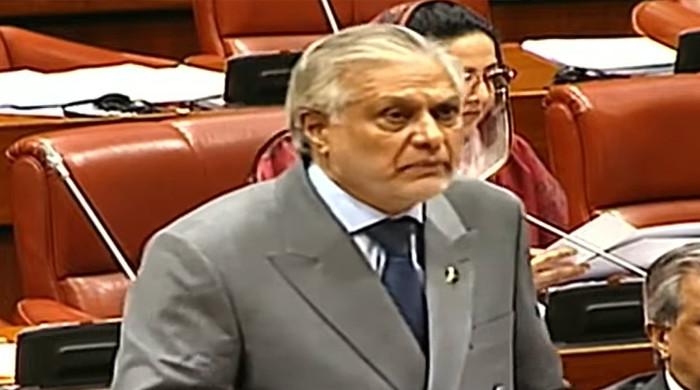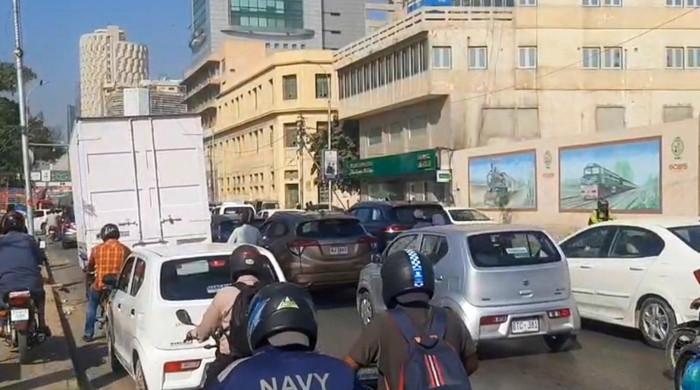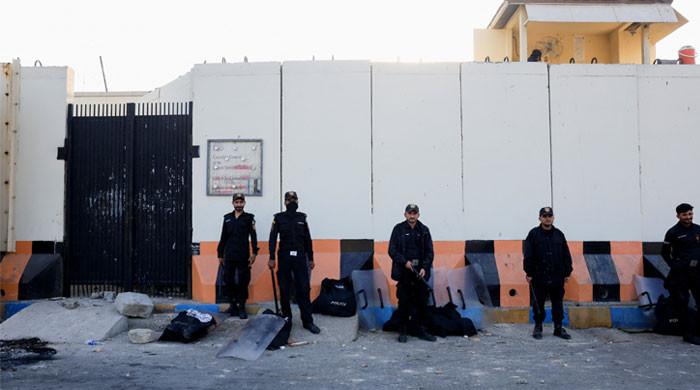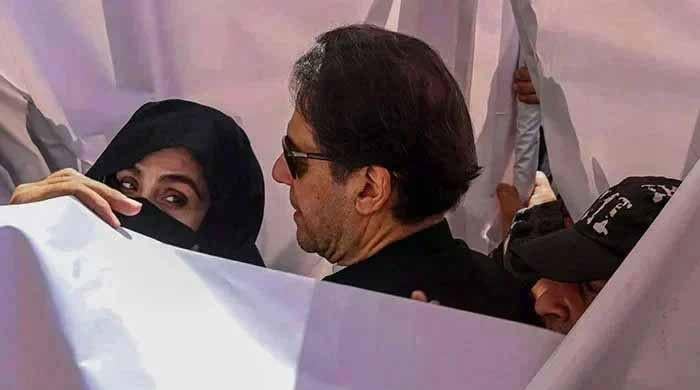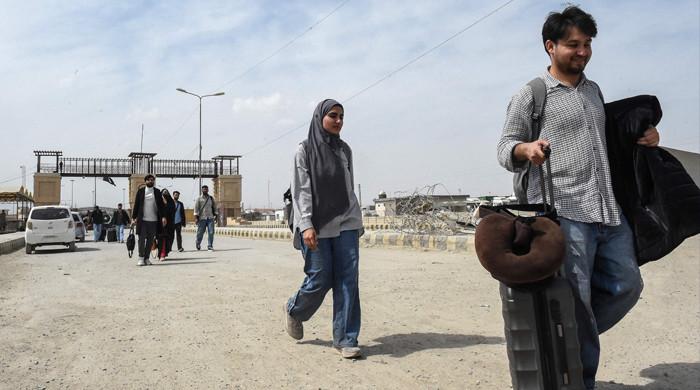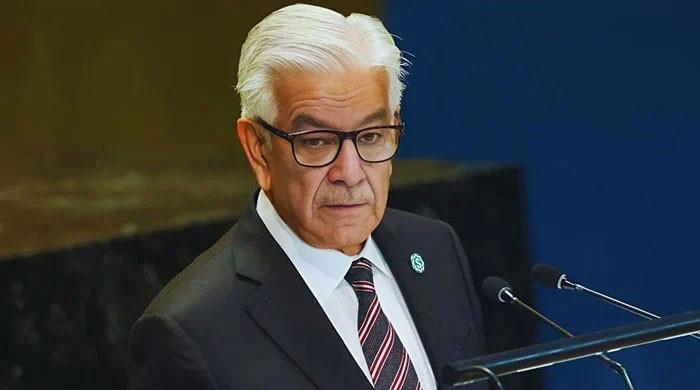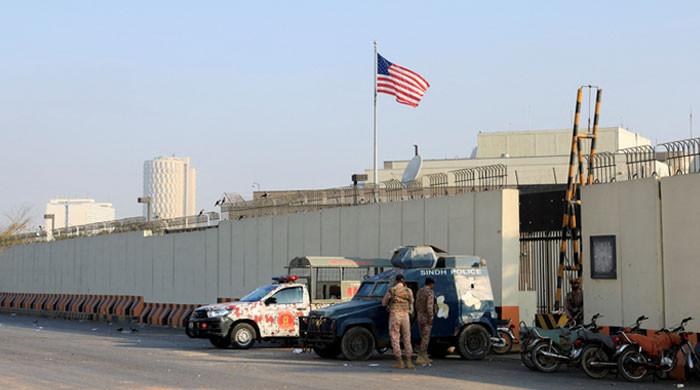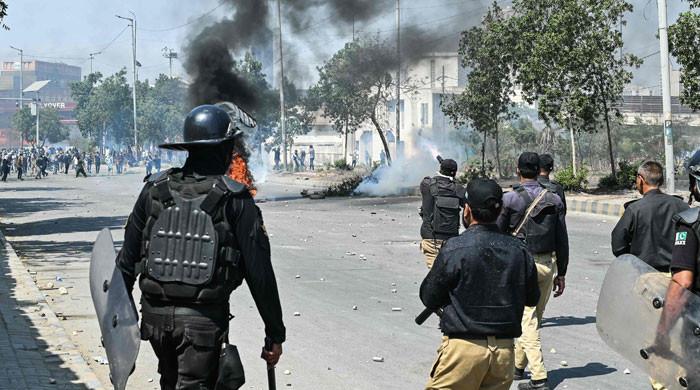Is PTI disarray political tactic or leadership crisis?
“Imran Khan himself is powerful; unfortunately, he doesn’t want the party to be more powerful."
August 27, 2025
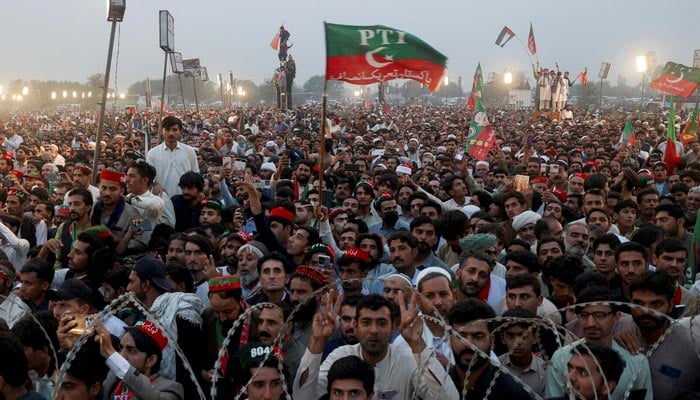
KARACHI: Political commentators say the PTI’s current turmoil stems less from structural divisions and more from Imran Khan’s own approach, with the jailed party founder still dictating strategy in ways that keep the PTI both united under his command and deeply uncertain about its future.
The immediate confusion has emerged around whether the party will participate in by-elections and continue working in parliamentary committees. While Imran Khan’s sister Aleema Khan announced that PTI members have been directed to resign from all National Assembly committees, reports suggest the political committee voted in favour of contesting the by-elections.
In a tweet on Tuesday, the PML-N’s Khawaja Asif accused the PTI of selectively approaching elections, saying it is eager to contest in Khyber Pakhtunkhwa, where it holds power, but is avoiding polls in Punjab, where defeat is likely.
The News asked political commentators about the PTI’s current political trajectory.
Former senator Mustafa Nawaz Khokhar, now with the opposition alliance Tehreek-e-Tahaffuz-e-Aeen Pakistan (TTAP), says the PTI should not forego the by-elections. He argues: “If they think this government will come under any moral pressure as a consequence, it couldn’t be far from the truth. A government that came into power after a historically disputed election, and then gladly took reserved seats after the contentious 26th Amendment, has no moral qualms about anything. Every move of this government should be resisted politically. I believe the PTI workers would like to see a more united front from their party members than the divisions that they are witnessing right now”.
Journalist Azaz Syed frames the confusion as a direct product of the PTI’s dependency on its founder. Talking to The News, he says: “Imran Khan is PTI, and PTI is Imran Khan. Imran Khan is in jail, and not under anyone’s control (establishment or anyone). Meanwhile, the part of the party that is outside is, in one way or another, ‘in line’. Those who are outside want to keep Imran Khan happy, but at the same time, they obviously don’t want to go back to jail either”.
According to Azaz, Imran is shaping a narrative of total withdrawal from parliamentary politics. “Imran Khan is gradually developing the narrative inside the party that ‘we should also resign from the assemblies’. It seems they are seriously considering not contesting the upcoming elections either, in an attempt to exhaust the system”. He recalls a conversation with a senior PTI lawmaker who revealed Imran’s consideration of resignations from both the National Assembly and Senate to undermine parliament’s credibility altogether. Yet, Azaz cautions that the PTI has already paid heavily for abandoning provincial assemblies, even as hardcore supporters continue to defend such decisions as politically energising.
This tension between loyalty and disillusionment is producing visible cracks. As Azaz notes: “The hardcore PTI supporters, who are strongly pro-Imran, say that whatever he says is correct... But if you sit with PTI MNAs today and ask them honestly, most of them want to leave the party. The only reason they do not leave is that they know the party workers, social media and common supporters will abuse and tarnish them badly”.
Political analyst/ TV host Asma Shirazi however feels that the ‘confusion’ in the PTI is not structural but personal: “There is no confusion within the PTI. All decisions are in Imran’s hands. Wherever he wants to create confusion, he does so himself, and he single-handedly runs the party. The party gets confused only when he wants it to”. She sees Imran’s approach as tactical -- keeping decisions fluid so that successes can be claimed and failures blamed elsewhere. “He tends to make decisions that are popular and makes them himself, later having the party disown them. Now he has made another decision, and it is very likely based on the same pattern”.
For Shirazi, the deeper issue lies in Imran Khan’s disdain for parliamentary politics itself. “I think the real issue is that he does not want to follow the difficult principles of accountability and procedure... Imran Khan does not believe in this political system. That is why he prefers to engage directly with the establishment rather than rely on the operating system of politics”.
Shirazi feels that this is why the party lacks any proper basic structure of management: “Even while in jail, he continues to maintain control over [the PTI]. This has been the strategy till now, and to some extent, I feel this has been quite successful as well”.
Echoing Azaz Syed’s words, Shirazi too says that “Imran is PTI and PTI is Imran”, adding that she doesn’t see the internal factionalism to be such an issue for the party precisely because of this.
There are those who defend the PTI’s current course as well. Barrister Ali Tahir argues the party’s ideological clarity remains intact: “In the case of the PTI, there is no ideological contradiction at all. The party has taken a very clear anti-establishment stance, and it is highly popular. The only real area of confusion is in electoral strategy”. For him, quitting parliamentary committees signals recognition that the system itself is hostile. “Remaining part of it only gives this system a veneer of legitimacy”.
Yet political commentator Mehmal Safraz stresses that without a coherent strategy, the PTI risks marginalising itself further. “The divisions within the PTI are quite apparent as there have been several public fights between leading members apart from reports of internal infighting... Imran Khan must realise that staying within the system will give his party more political space than staying out of it. This space keeps shrinking in this hybrid pro max system. The PTI should focus on a coherent political strategy.”
Journalist Hassan Iftikhar places the conflict between two competing approaches: force versus negotiation. “One side feels that by showing strength and muscle they can impress or bring down people... The other position is that politics in Pakistan does not work like this, and that dialogue and negotiations must remain open”. He views the party’s disruptions -- from quitting committees to making noise about Imran’s incarceration -- as survival tactics. “The aim is disruption -- to the extent that he is released on his own terms”.
The element of factionalism adds another layer. Iftikhar notes groupings around Aleema Khan and Bushra Bibi, driven by the leadership vacuum. Journalist Majid Nizami also highlights these divisions, with Aleema said to be pushing a more aggressive line. For Nizami, however, withdrawal has already proven costly: “We already have an example before us: the Punjab Assembly. The PTI had a strong position there, but they handed it over to their rivals on their own... This miscalculation shows the cost of such decisions”.
Ultimately, all voices return to the same focal point — Imran Khan. Whether seen as a strength or a liability, his centrality defines the PTI’s direction. As Azaz Syed puts it: “He is both the greatest strength of PTI and also its greatest weakness”, adding that the irony in all this is that “Imran Khan himself is powerful; unfortunately, he doesn’t want the party to be more powerful”.
Originally published in The News




